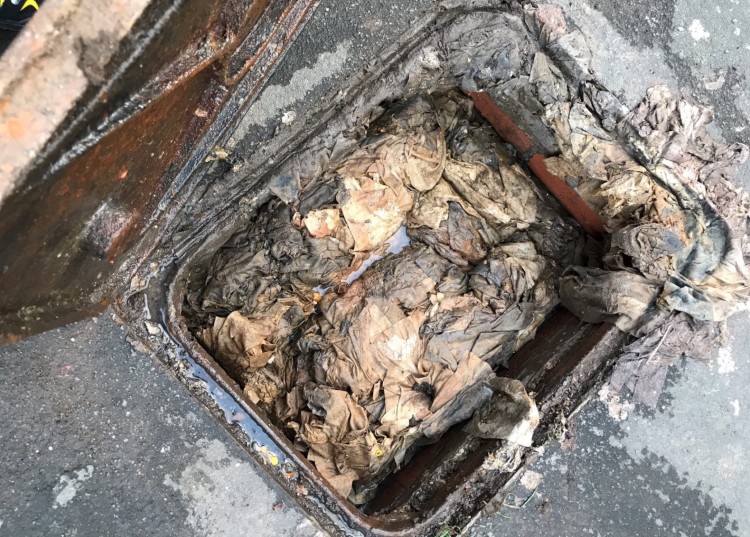Northumbrian Water is asking customers to make a resolution to help reduce blockages that can cause sewer flooding this New Year.
Blockages in sewers can force the waste from toilets, showers, sinks and water-using appliances back into homes or out into the environment.

So, the water company is making an appeal for customers to stop flushing wipes down the loo.
Wipes flushed down toilets are the number one contributor to such blockages. Unlike toilet paper, most contain plastic and they do not break up when flushed.
This means they can get caught or settle in pipes, creating a risk of a blockage.
The company launched its Bin The Wipe campaign in 2020 to help customers understand the issues caused and how they can help.
The Bin The Wipe campaign targeted more than 58,100 homes across targeted hot spots in 2021 and the company is aiming to go even further in 2022.
On one occasion the team found a massive 263 wipes on a tracking tool in one inspection chamber, which could have had devastating consequences for nearby homes, had they not been removed.
Simon Cyhanko, Head of Wastewater Networks at Northumbrian Water, said: “Sewer flooding, where waste is forced back into people’s homes, is one of the worst things that can happen to customers, in relation to our network. It’s horrific.
“But it’s easy to play a part of reducing the chances of this happening. We find wipes in more than 60% of the blockages we find in our sewers. If people stop flushing them, the chances of a blockage can reduce dramatically.
“We know many customers have stopped flushing wipes in the last couple of years, but many still do. Making a resolution this New Year to stop putting wipes down the loo helps to protect your home, those of your neighbours, and the environment.
“Please, make 2022 the year you Bin The Wipe.”
In 2021, the campaign targeted hot spots in Darlington, Ferryhill, Spennymoor, Newton Aycliffe, Bowburn, Washington, Gateshead and South Shields.
